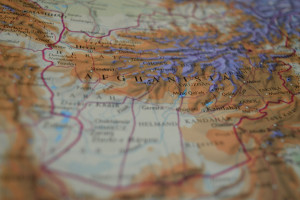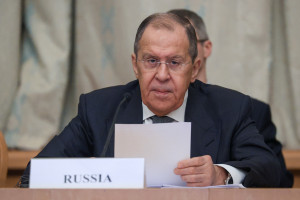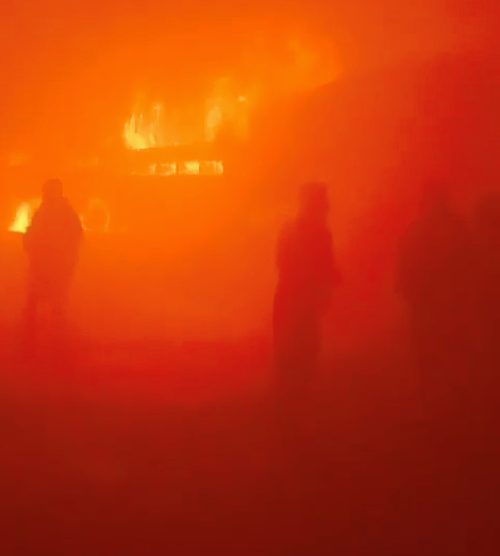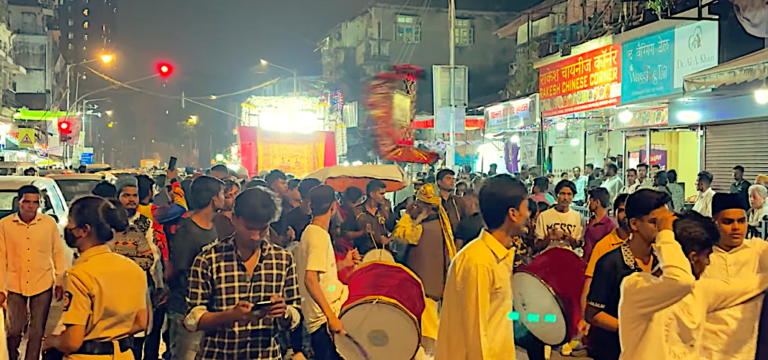
Moscow/ Washington/New York/Beijing: The USA’s absence from the Moscow Format Consultations on Afghanistan, that was held here on October 24, 2021, has much to do with the geo-strategic alliances shaping up in the region following the withdrawal of the American troops after 20 years from Afghan soil.
The way the Americans left in a hurry has made the region a boiling point. With the coming together of its arch rivals Russia, China and Iran on the issue of Afghanistan along with other major players in the region, importantly India and Pakistan, along with the interim government of Afghanistan (read Taliban), has made things speculative in the American minds.
Little surprise therefore that the day the Moscow meeting was convened, the White House Press Secretary Jen Psaki told journalists en route Avoca, Pennsylvania that the US would have to get more detail on the “exact nature of the discussions”.

However, this was not the first time that the USA had turned down the offer to join the deliberations and Russian Foreign Minister Sergey Lavrov was quick to point out during the consultations in Moscow yesterday that this was the second time in a row that the Americans had avoided an expanded troika meeting (Russia-United States-China-Pakistan). “I hope this does not involve any fundamental problems,” he said.
Expressing regret that “our US colleagues are not participating in this meeting”, Lavrov informed that one of the reasons that the US offered to him for its non-attendance was the recent appointment of a new US Special Representative for Afghanistan.
On October 18, 2021, the US Special Representative for Afghan Reconciliation Zalmay Khalilzad was replaced by Thomas West, who previously served as the Deputy Special Representative and in the past had also served on then-Vice President Biden’s national security team and on the National Security Council staff. In his present role, West would lead diplomatic efforts, advise the Secretary and Assistant Secretary for the Bureau of South and Central Asian Affairs, and coordinate closely with the U.S. Embassy Kabul presence in Doha on America’s interests in Afghanistan.
The Russian Foreign Minister hoped that the US “remains ready to work energetically on the Afghanistan-related agenda, and the new Special Representative will join in further steps, including ones that will follow in the wake of this Moscow-format meeting in the context of implementing the agreements that you will reach today”.
Apparently, what highlights American apprehensions over the Moscow Format was Psaki’s statement, where she stressed that the US was already working through with the U.N. on and working through with 100 countries around the world. “Obviously, our focus remains working with like-minded countries and parties around the world to ensure that we are sending a clear message to the Taliban about the expectations that there is freedom for people to depart Afghanistan, that we are allowed to have flights in, get humanitarian assistance to the right people,” she said.
Psaki did have a point considering that Farhan Haq, Deputy Spokesman for the United Nations Secretary-General, in New York yesterday that even though it will be in touch with the various partners working to get the talks going in Moscow, the UN was not involved in this latest round of talks. At this stage, Haq stated, what the UN was encouraging was to see whether there could be more of an effort by countries, both in the region, and more generally, throughout, to work to ensure that the situation in Afghanistan remains peaceful and the basic rights of all Afghans are upheld.
Russia’s contention has been that the Moscow format’s main and indisputable advantage is that it unites Afghanistan with all neighbouring countries and other influential states of the region without exception. Lavrov stated: “We are convinced that the United Nations should pay a central coordinating role in pooling international efforts on the Afghan track.”
However, there appear few contradictions as well within the Moscow Format. An important point made in Moscow and adopted in the joint statement yesterday was that further practical engagement with Afghanistan needed to take into account the new reality, that is the Taliban coming to power in the country, irrespective of the official recognition of the new Afghan government by the international community.
However, clarifying on the statement, Chinese Foreign Ministry Spokesperson, Wang Wenbin, told mediapersons in Beijing today that as for whether China recognizes the interim government, “I would like to tell you that the new Afghan regime is still in the process of formation and the international community is watching and coordinating on the issue. China is in close communication with relevant countries and all parties agree on the need for dialogue and engagement with Afghanistan”.
China, however, also sought to dispel any doubts about the deliberation outcome, and Wenbin claimed all parties had an in-depth exchange of views and reached broad consensus on such issues as the current situation in Afghanistan, counter-terrorism and anti-narcotics security and humanitarian assistance to Afghanistan.
Lavrov mentioned that a collective appeal by those at the Moscow format meeting to the leaders and all members of the UN was published following October 20 meeting, and he hoped it will be heard “and we will receive a positive response to it in the near future”.
It is in this multilateral arrangement that India’s concerns, given its links trading and cultural links with Afghanistan, is understandable. India has been more open in discussing the issue with both the USA as well as Russia, China and Pakistan.
As it is, the Moscow format dates back to 2017. The delegations of the Taliban and the republican camp met for the first time at the Moscow format negotiating table in the presence of representatives of 10 countries in November 2018.
Yesterday’s was the third meeting of the participants of the Moscow Formatd on which special representatives and senior officials from Russia, China, Pakistan, Iran, India, Kazakhstan, Kyrgyzstan, Turkmenistan and Uzbekistan, as well as a high-level delegation of the interim Afghan government adopted an 8-point resolution that stated the following:
- The sides reiterated their respect to the sovereignty, independence and territorial integrity of Afghanistan, and reaffirmed their commitment to Afghanistan as a peaceful, indivisible, independent, economically developing State, free of terrorism and drug-related crime and respecting the basic norms in the human rights area.
- It was stated that further practical engagement with Afghanistan needed to take into account the new reality, that is the Taliban coming to power in the country, irrespective of the official recognition of the new Afghan government by the international community.
- Participating countries call on the current Afghan leadership to take further steps to improve governance and to form a truly inclusive government that adequately reflects the interests of all major ethno-political forces in the country. This will be a fundamental prerequisite for the completion of the national reconciliation process in Afghanistan.
- Participating countries call on the current Afghan leadership to practice moderate and sound internal and external policies, adopt friendly policies towards neighbors of Afghanistan, achieve the shared goals of durable peace, security, safety, and long-term prosperity, and respect the rights of ethnic groups, women and children.
- Being concerned about the activities of proscribed terrorist organizations in Afghanistan, the sides reaffirmed their willingness to continue to promote security in Afghanistan to contribute to regional stability.
- The participating countries were pleased to note the reaffirmation by the interim Afghan government of its previous commitments to prevent use of the Afghan territory against its neighbours, other States in the region and the rest of the world.
- Expressing deep concern over the deteriorating economic and humanitarian situation in Afghanistan, the sides expressed confidence in the need for the international community to mobilize consolidated efforts to provide urgent humanitarian and economic assistance to the Afghan people in the post-conflict reconstruction of the country.
- In this context, the sides have proposed to launch a collective initiative to convene a broad-based international donor conference under the auspices of the United Nations as soon as possible, certainly with the understanding that the core burden of post-conflict economic and financial reconstruction and development of Afghanistan must be shouldered by troop-based actors which were in the country for the past 20 years.
Lavrov made it loud and clear that now that the situation on the ground had turned around, it was “pointless to look for someone to blame for the failure to achieve tangible results regarding national reconciliation”. He summed it up, stating that notably, hopes pinned on the Republican camp in the USA, and the former government led by former Afghan President Ashraf Ghani failed.
– global bihari bureau





